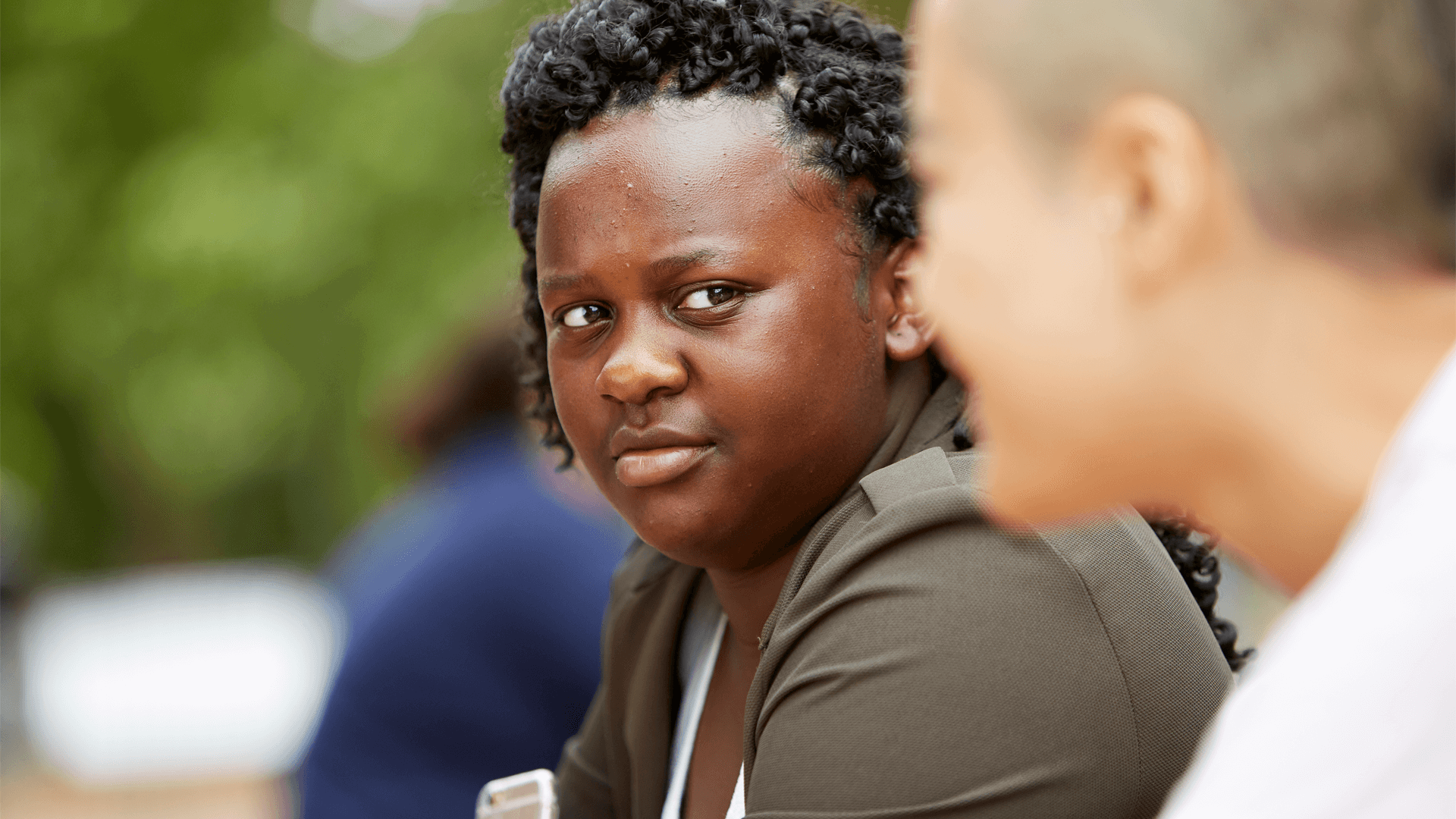What is schizophrenia?
Schizophrenia is a condition where your experience does not match up with reality as other people see it - a symptom called psychosis. In schizophrenia you may have developed 'psychotic' symptoms.
For example, you might see, hear or believe things that for other people are not true. You can also feel muddled, low or withdrawn.
Schizophrenia is a serious illness, but it can be treated. It usually appears between the ages of 15 and 35. The cause is unknown, but you're more likely to experience it if a parent has it, or if you've had brain damage, drug and alcohol problems, or difficulties at home.
Having schizophrenia does not mean you have a 'split personality' or that you are violent.
If you think you might have schizophrenia, you are not alone. It can be scary, but help is available.

Artwork credit: @crazyheadcomics. A person with short black hair wears an orange top that has lots of patterned lines across it, the person is looking up and slightly smiling, above their head is a bunch of shapes, all different patterns and colours with some being plain and some with stripes across them. On either side of the person's head, it reads 'my mind is remarkable despite my mental illness'.
The symptoms of schizophrenia
Common symptoms of schizophrenia include:
- hallucinations where you see, feel, smell or hear things that aren't there
- delusions, where you 'just know' things that seem unreal to other people, e.g. paranoid beliefs that there is a conspiracy against you
- muddled thinking and difficulty concentrating
- a feeling that you're being controlled by something outside yourself
- not feeling up to normal activities like washing, dressing or seeing friends.
See also: symptoms of psychosis.
Other people might notice symptoms before you do, because the condition means you don't always know what's real.
Just because you experience one or more of these symptoms, it doesn’t mean you’re definitely affected by schizophrenia. It’s important to talk to your GP to get a full diagnosis.

Artwork credit: @crazyheadcomics. Three plant pots have all different types of plants in them, with one being a cactus, another being all leaves and the other having blue leaves and pink flowers. Under the pots, it reads 'mental health looks different for everyone'.
What to do about schizophrenia
Although it sounds scary, schizophrenia is the most common serious mental health condition and can be successfully treated.
If you think you are affected by schizophrenia, talk to someone straight away. Choose someone you like and trust, like a teacher, relative, counsellor or friend.
You should also see your GP. They may offer to refer you to Child and Adolescent Mental Health Services (CAMHS), an expert or a psychiatrist who can help you.
Treating schizophrenia
You will usually be offered antipsychotic or neuroleptic medication. These can reduce symptoms and stop them coming back in the future.
You might also be offered cognitive behavioural therapy (CBT), other types of therapy or support through family intervention.
More information and support
Get help now
Where to get help
If you're struggling right now, you don't have to go through this alone. Here are some places where you can get help and support.
-
Samaritans
Whatever you're going through, you can contact the Samaritans for support.
- Opening times:
- 24/7
-
Childline
If you’re under 19 you can confidentially call, chat online or email about any problem big or small.
Sign up for a free Childline locker (real name or email address not needed) to use their free 1-2-1 counsellor chat and email support service.
Can provide a BSL interpreter if you are deaf or hearing-impaired.
Hosts online message boards where you can share your experiences, have fun and get support from other young people in similar situations.
- Opening times:
- 24/7
-
The Mix
Offers support to anyone under 25 about anything that’s troubling them.
Email support available via their online contact form.
Free 1-2-1 webchat service available.
Free short-term counselling service available.
- Opening times:
- 3pm - 12am, seven days a week






